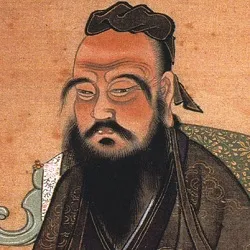- RESEARCHDistance Learning at AIU is enhanced by vast academic resources and innovative technologies build into the Virtual Campus: Hundreds of self-paced courses with video lectures and step by step lessons, thousands of optional assignments, 140,000 e-books, the Social Media & Networking platform allowing collaboration/chat/communications between students, and MYAIU develop students holistically in 11 areas beyond just academics.
- PROGRAMS OFFERED
- Areas of Study
- Courses and Curriculum
- Open Courses
- Register for a Program
- Associate Program
- Associate in Addiction Counseling
- Associate in Agriculture Food And Resources
- Associate in Anti Terrorism Security
- Associate in Behavior Analysis In Special Education
- Associate in Bioethics
- Associate in Climatology
- Associate in Cultural Theological Communication
- Associate in Culinary Arts
- Associate in Ecotechnology
- View all Associates Programs
- Bachelor Program
- Bachelors in Community Development
- Bachelors in Environmental Science
- Bachelor in Education (B.Ed, BS)
- Bachelors in Economics
- Bachelors in Entrepreneurship
- Bachelors in Financial Administration
- Bachelors in Human Resource Management
- Bachelors in Linguistics
- Bachelors in Nutritional Science
- Bachelors in Occupational Health and Safety
- Bachelors in Psychology
- View all Bachelor Programs
- Doctorate Program
- Doctor | of Biology (PhD)
- Doctorate in Business Administration (DBA, PhD)
- Doctor of Economics (PhD)
- Doctor of Electrical Engineering (D.Sc, PhD)
- Doctor of Finance (PhD)
- Doctorate in International Relations
- Doctorate in Information Technology (D.Sc)
- Doctor of Legal Studies (PhD)
- Doctor of Project Management (PhD)
- Doctor of Sociology (PhD, D.Sc)
- Doctorate in Sustainable Natural Resources Management
- View all Doctorate Programs
- Master Program
- Postdoctoral Program
- Postdoctoral in Animal Science
- Postdoctoral in Anti Terrorism Security
- Postdoctoral in Behavior Analysis In Special Education
- Postdoctoral in Bioethics
- Postdoctoral in Blockchain Technology and Digital Currency
- Postdoctoral in Business Management
- Postdoctoral in Cloud Computing
- Postdoctoral in Computer Engineering
- View all Postdoctoral Programs
AIU offers a wide range of majors in areas including the Arts, Business, Science, Technology, Social, and Human studies. More than 120 degrees and programs are available for adult learners at the associate’s, bachelor’s, master’s, doctoral and postdoctoral level. - VIRTUAL CAMPUS
Distance Learning at AIU is enhanced by vast academic resources and innovative technologies build into the Virtual Campus: Hundreds of self-paced courses with video lectures and step by step lessons, thousands of optional assignments, 140,000 e-books, the Social Media & Networking platform allowing collaboration/chat/communications between students, and MYAIU develop students holistically in 11 areas beyond just academics.
- ALUMNI
The world is YOUR campus!”, that is the message of AIU’s month magazine Campus Mundi. Hear the voices and see the faces that make up AIU. Campus Mundi brings the world of AIU to you every months with inspirational stories, news and achievements by AIU members from around the world (students and staff are located in over 200 countries).
Anthropocentrism and Sustainable Tourism
Integrating Anthropocentrism and Sustainable Practices in Tourism: A Pathway to Responsible Travel
This publication explores the complex relationship between anthropocentrism and sustainable tourism, highlighting the need for responsible travel practices. It examines the economic impacts of tourism, the significance of the Anthropocene and Chthulucene, and the role of the UN’s Sustainable Development Goals. Discover more insights on related topics in AIU Mundi Magazine!

The publication titled “Anthropocentrism and Sustainable Tourism” provides an in-depth exploration of the intricate relationship between human activities, particularly in the tourism sector, and their impact on the environment. It emphasizes the importance of understanding anthropocentrism—the belief that human beings are the central focus of consideration—in shaping tourism practices and policies.
The course introduces anthropocentrism as a guiding theme, examining how human-centric perspectives influence tourism. It highlights the need for sustainable practices that balance human desires for exploration with the imperative to protect diverse ecosystems.
The publication delves into the historical and cultural contexts that have shaped travel patterns and resource consumption. It critiques the ecological footprint of the tourism industry and discusses how anthropocentric ideologies have historically dominated tourism practices.
The document outlines various sustainable tourism practices aimed at fostering harmony between tourism and environmental preservation. It emphasizes the importance of integrating sustainable practices into the tourism industry to mitigate negative impacts on the environment.
A significant portion of the publication contrasts the concepts of the Anthropocene and Chthulucene. The Anthropocene is characterized by the profound impact of human activities on Earth’s geology and ecosystems, while the Chthulucene advocates for interconnectedness and multispecies collaboration, urging a departure from anthropocentrism. This section discusses the need to recognize the agency of non-human entities and promote practices like regenerative agriculture and biodiversity conservation.
The publication outlines the UN’s Sustainable Development Goals (SDGs), categorizing them into social, economic, and environmental goals. It emphasizes the importance of these goals in guiding sustainable development efforts and addressing inequalities, promoting well-being, and ensuring environmental sustainability.
The document provides examples of destinations like Maya Bay in Thailand, which have implemented measures to combat over-tourism and ensure a sustainable experience for both locals and tourists. It discusses the role of government interventions in balancing the interests of residents and tourists.
The publication serves as a call to action for individuals and organizations to contribute to the evolution of a more sustainable and responsible tourism industry. It encourages readers to engage with the material and apply the insights gained to their practices and policies.
In conclusion, this publication offers a comprehensive examination of the relationship between anthropocentrism and sustainable tourism, providing valuable insights into the challenges and opportunities within the tourism sector. It advocates for a shift towards more sustainable practices that recognize the interconnectedness of all life on Earth, urging readers to consider their role in fostering a more responsible tourism industry.
Atlantic International University
Get to know the AIU experience
Contact Us Today!
We understand how busy adults do not have time to go back to school. Now, it’s possible to earn your degree in the comfort of your own home and still have time for yourself and your family. The Admissions office is here to help you, for additional information or to see if you qualify for admissions please contact us. If you are ready to apply please submit your Online Application and paste your resume and any additional comments/questions in the area provided.
Pioneer Plaza
900 Fort Street Mall 905
Honolulu, HI 96813
800-993-0066 (Toll Free in US)
808-924-9567 (Internationally)
808-947-2488 (Fax)
AIU Success Stories







Contact Us Today!
Begin Your Journey!
AIU’s Summer of Innovation and Growth gives you the ability to earn up to $5000 in tuition credit by completing free lessons and courses.
Whether you’re looking to acquire new skills, advance your career, or simply explore new interests, AIU is your gateway to a world of opportunities. With free access to 3400 lessons and hundreds of courses the ability to earn credits and earn certificates there’s no better time to start learning.
Join us today as a Guest Student and take the first step towards a brighter, more empowered future.
Explore. Learn. Achieve.
Degrees

Contact Us
Atlantic International University
900 Fort Street Mall 905 Honolulu, HI 96813 info@aiu.edu
Quick Links
Home | Online Courses | Available Courses | Virtual Campus | Career Center | Available Positions | Ask Career Coach | The Job Interview | Resume Writing | Accreditation | Areas of Study | Bachelor Degree Programs | Masters Degree Programs | Doctoral Degree Programs | Course & Curriculum | Human Rights | Online Library | Representations | Student Publication | Sponsors | General Information | Mission & Vision | School of Business and Economics | School of Science and Engineering | School of Social and Human Studies | Media Center | Admission Requirements | Apply Online | Tuition | Faculty & Staff | Distance Learning Overview | Student Testimonials | AIU Blogs | Register for Program | Privacy Policy | FAQ



















